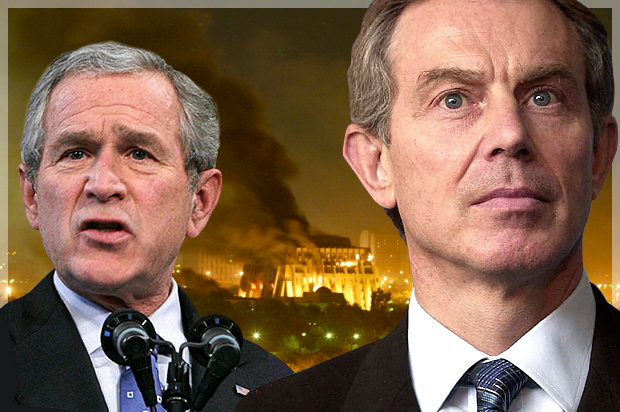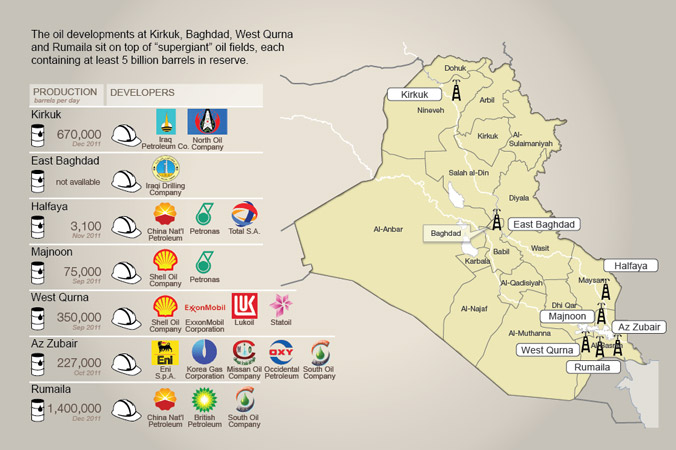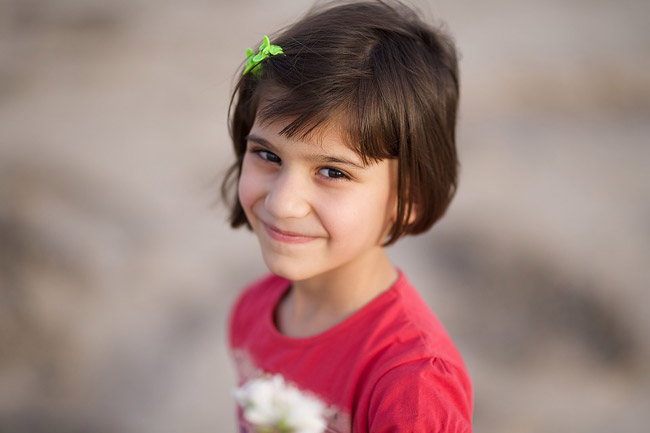These days we hear very little about the fate and situation of people in post Saddam Iraq, apart from the fact that it became liberated and now the Iraq people are free. Darren Guy spoke with Jananne about her experience of growing up under Saddam and now in the new Iraq.
I was one of the 1 – 2 million people who took the early morning bus from Liverpool to London to march against the Iraq ‘war’ in 2003. The march was so big, that many of our Liverpool crew couldn’t find their buses home afterwards, and had to jump buses to other towns. A war that was to see the middle-east torn apart, physically and mentally. What George Bush and Tony Blair called ‘The war on terror’.
These days we hear very little about the fate and situation of people in post Saddam Iraq, apart from the fact that it became liberated and now the Iraq people are free.
Jananne is from Basra, Iraq’s second city, the city the British took from Saddam in 2003. She managed to get a scholarship to study in the UK and despite completing her masters in UK, and completing her PhD in computer engineering in Iraq, she still cannot get a job. Jananne was born in wars and has grown up through war, and with the fall of Saddam in 2003, the promise of a new tomorrow, hasn’t happened yet. But in oil rich Iraq, Jananne like the majority of people struggles to make ends meet, whilst a tiny minority reap the benefits. Young people frustrated with lack of job opportunities and corruption are taking to the streets.
Tell us about yourself Jananne?
I was born in Iraq in 1986. During the Iran – Iraq war, my childhood from 86 until when I came to the UK in 2012 was dominated and impinged by war. When the Iran –Iraq war ended in 1991, I started school. But then this was quickly followed by the First Gulf War and when I graduated from high school to university it was the the 2nd Gulf War, in between, we had massive embargoes, were thousands of children died, were a country that had once had a highly educated population with a standard of living to match, was now full of poverty, hunger and disease. So I suppose when I look back, life was a little bit hard. In 1987, when I was 1 year old, my father was sacked from his job, because he refused to join the army that Saddam had established for lecturers and teachers to fight against Iran. My father, who wasn’t religious, didn’t buy the suni against shia idea and was chatting with someone and said ‘why are we fighting Iran?’ and that someone made a report about my father and he got sacked from his job. Which also meant he was barred from working in any government job, and this meant he couldn’t find proper work for over 10 years. He tried to work in many jobs, like a waiter in the restaurant etc but each job, the secret security came and threatened the owner, and my father would lose his job. So my father was left with no employment.
What about your mother?
Well my mother too had many problems, her brother, my uncle, was a leftist in the 1970s. And in 1979 when he was a graduate, he was taken by the security service and disappeared, because he opposed the Saddam regime. And my mum’s family couldn’t find anything about what had happened to him, they couldn’t even ask questions about him, because they might suffer the same fate. In 2003, when Saddam was gone, they started searching again. Many people started searching for their relatives, who had been said to have ‘disappeared’ by the government. And my family discovered that a year after he had been taken, he been killed, thrown into a pool of acid.
How did your family survive?
We survived because me mum was working as a teacher, but she could never mention her brother to anyone. My family had to keep moving to different houses, in case someone found out about the connection, my mother never even told my father about her missing brother. That’s how bad things were under Saddam, everyone was afraid and paranoid. Also I had another uncle, my mum’s other brother who was an officer in the army and he destroyed any evidence that linked my leftist uncle to our family. Because when they take one relative they would then come for others. My other uncle in the army was killed in 1982 in the Iran – Iraq war. He left behind 4 kids. My uncle’s wife, took my cousins and moved to another city to start a new life, and to ensure no-one knew she was related to our family, just in case. Yeah things I suppose were hard.
When my mother married my father she thought things will get easier, but then 1986 my father lost his job, so my mother had to try and support the family.
So my childhood was tough, we didn’t have money. My parents tried their best to ensure we had a normal childhood but it was hard for them at the same time. And they suffered trying to get the money to take us to hospital etc. For example when I started school in 1991, they couldn’t buy me clothes, so my father took his old trousers to a tailor. And he made me a skirt, my grandfather bought me a white tee shirt and I got shoes from my cousin, so it was hard at that time.
I have a 2 younger brothers and sisters and they went through the same things.
During the time my father couldn’t find work, my mother earned about 3000 Dinas per month which is around $2, so it was nothing, we had to live and rely on my aunt and there were 3 sometimes 4 families living in the same house. Our family in 1 room, the other families in the other rooms. In 1990 when Iraq invaded Kuwait, we moved to another city because my auntie’s house was destroyed. I say city, but it wasn’t really, it had no modern facilities or anything and we stayed there until the war was over. Then we went we went back to Basra. I remember when we were going back, The American army were on the border and they asked us, if we wanted to go back to my city, Basra, or go with them to the border to a refugee camp.
My parents thought the first Iraq war would finish Saddam, so we decided to move back to Basra to try and have a nicer life. But the war didn’t finish Saddam in fact he just got stronger. Lots of our neighbours lost family members during the war. I remember at the time one of my neighbours was taken from his house and they cut off his ear and another one was shot dead, and then the soldiers came and demanded the price of the bullet from the family. Because that is the way to humiliate and scare everyone. Forcing the family to pay for the bullet that they killed their son with.
Basra became a very scary city, lots of killing going on, anyone who was against Saddam, or suspected of being against him could be killed.
So we knew at the beginning of the war in 1990 that Saddam was weak, so weak that it would be the end of him, but when the Americans left, Saddam became stronger. Lots of people got killed during that time.
I heard there was a number of uprisings in Iraq after the Americans left to try and get rid of Saddam?
There was maybe 11 cities were they had a revolution against Saddam. Baghdad, the capital and Mosul stayed the same. But Saddam destroyed the revolution and anyone who was against him or had any opinion, was killed. I remember, I was 6 or 7 and there was a gate near my house and they took all the people who had done or said anything against Saddam and they put them all against the wall and shot them, leaving their bodies there, so people would see what could happen to them. I never saw it with my own eyes, my parents kept me away, but I remember my parents talking about it. It was so scary, and we didn’t dare leave the house.
People suffered under Saddam, during the wars, in between the wars. Everyone was suffering for all those years in between, for lack of medicines, lots of children and old people died, (the west had an embargo on medicine, so hundreds of thousands died). My family sold everything just to have money to eat, we had nothing left. Until around 1997, when Iraq drew up an agreement with the UN (oil for aid?). My father got a job then, he was hired as a translator.
During this time my mother was pushing us hard to get an education, everyone situation was bad, even the educated people. My uncle had a master’s degree but he worked as labourer and his salary was almost nothing. We couldn’t afford anything. Saddam took everything for himself.
My parents would have been middle class, in normal circumstances, they were educated but when my father lost his job in 87, we suffered poverty like everyone else. I remember growing up with lots of kids dying during that time because of disease, because families couldn’t afford health care. The people of Iraq were punished because of the first Gulf War, but Saddam wasn’t punished. I remember when I was a child every year Saddam had a big party and we just watched him celebrating, it was on screens and TVs everywhere and we had nothing, not even enough food. It was hard to watch.
My parents were not really religious during those years, when I was child, many people weren’t bothered by religion, they may have had personal religious beliefs but it wasn’t a big deal. But during the second Gulf war in 2003 no one believed Saddam would leave. We thought he would use the chemical warfare again. In 2003 during the war, we went to live with my grandfather in his house. We lived in a small room. There was a small space; we use to hide there. When the rockets came towards the house.
The 2nd Gulf war started on 20th March 2003, I was 18 and in 3 weeks Saddam was defeated. But we didn’t believe this. We believed he was invincible, that he would come back. I remember when I was a kid they use to say ‘Saddam is behind the door’ like he can listen to everything you say. Those 3 weeks were scary, bombs dropping everywhere. My city was under the control of the British army. Eventually it dawned on us, it was true, Saddam was gone, and everyone was feeling happy that Saddam had gone. My father and his sister said people were waving at the army. It was like a dream, we couldn’t believe it. People threw roses at the British Army. But then after Paul Bremer (American leader of the collation Authority in Iraq May 2003 to June 2004) took control he gave good salaries to all employees. Both my mother and father wages increased loads. But when the Americans left they left the criminals and religious fanatics in control, and they began to control the streets and the cities.
I remember Tony Blair on the news talking about why they were starting the war, and it was weird, because it wasn’t us, it was Tony Blair and people were unhappy about this.
I remember my parents were talking. Thinking they wouldn’t get rid of Saddam but they would just draw up an agreement with Saddam.
In the second war, despite the bombings, the Americans made sure the oil fields were protected. We saw the American news, and believed they cared but they didn’t care about the people. The problem is when they left; there was no law anywhere, so the criminals and religious fanatics took control. Then they started working together. I noticed in the last elections the same people keep coming back. Some people were good. But it was always the same people returning to government despite a different person standing, and people’s lives became hard again. My father died in 2008. The situation became worse and worse and then Suddenly from nowhere ISIS appeared and then we had another war.
What the situation like now?
From 2014 to now, there were no jobs in the Iraq government, because the price of oil came down there is no money to pay people, I left university and there were no jobs for graduates. Unless you know someone in the government, and then you don’t even have to have the skills or the qualifications. So its ‘who you know’ is important. For example my sister and her husband graduated in physics in 2015 and they have had no jobs. People only survive by friends or family helping them, so my sister’s husband works in his fathers business, instead of working in physics. My sister and him are both living with his parents.
The difference between today and before the war, you have the freedom to say what you like, you have the freedom to speak, but you have no jobs, no money to do anything. In my city, Basra, now, young people are protesting, there are many protests in one they burnt down the town hall. Some people have lots of money but the majority are very poor.
How did people feel about ISIS?
Some people were happy when ISIS came to the city, for example a friend of mine in Mosul was happy he thought they would change everything, get rid of corruption etc. But he soon realised it wasn’t the case.
How has your work situation been?
I studied in computer engineering in my degree, to masters and now PHD. I got a job in the university in 2010 but in 2014 I lost my job. Because there was no money to pay me. In Saddam time, once you graduated you got a job, depending on your skills and qualifications.
How is the situation regards equality between men and woman?
We get the same salary for the same job, but in terms of cultural things women are still seen as less important than men. Until last year woman were not allowed to drive cars, or allowed to work in certain jobs. Women are still expected to cook and clean in the kitchens.
Would you like to add anything?
We need to have laws to protect people, I mean Iraq is a rich country, it has massive oil reserves, it was nationalised under Saddam, now it is mostly owned by the world largest oil companies, Shell, BP, Total and even Iraq Petroleum Company (IPC) despite its named is owned by the same companies with their headquarters in London.
But in comparison the wages are nothing like what people would get paid in Kuwait or Saudi Arabia. My wages here, if I worked would be £700 per month in the other rich oil countries it would be £3000. Iraq is not getting build up, there are only the oil companies coming to Iraqi, BP, Shell, Total and many other none Iraqi oil companies, making profit from oil and putting nothing back. For example in Basra, the water is dirty. You cannot drink the water. You have to buy it. Everyone who is in government wants to stay there and look after their own interests. People have become more selfish. More about themselves. In September, when the protests started, the government started shooting people, they are committing human rights abuses, there is torture of young people but despite this, the protests continue.


